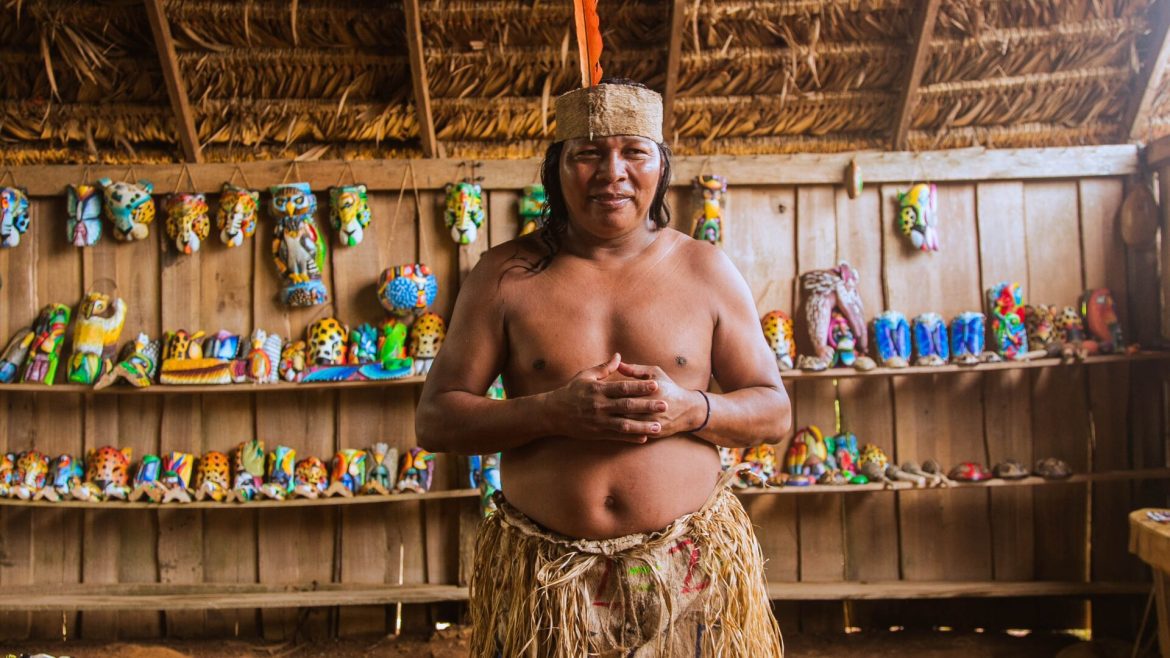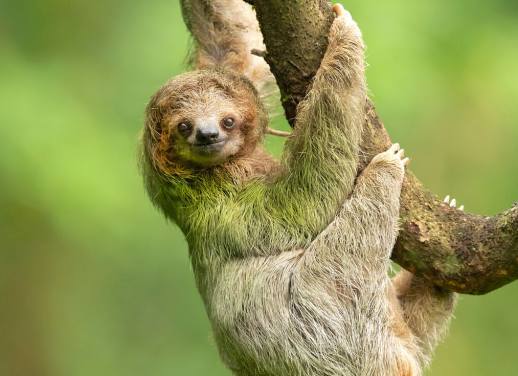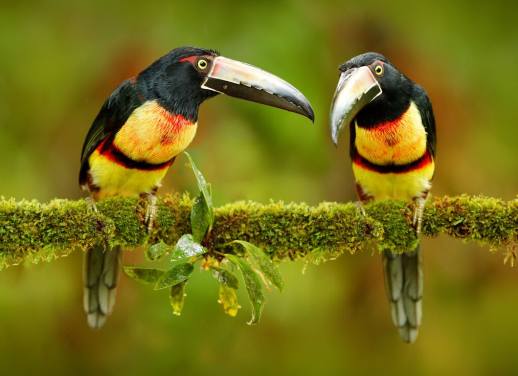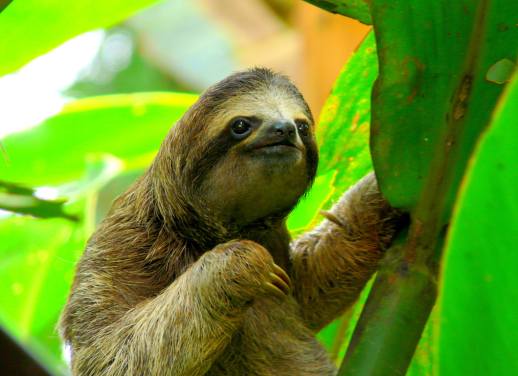Costa Rica is a nature lover’s dream. But on a journey through Costa Rica, Jemma Fowler realises that nature, and the indigenous communities that rely upon it, need more than love and appreciation. They need respect and, more importantly, environmental action.
This is a rare and magical encounter.
I’m standing on a moonlit beach in Tortuguero, Costa Rica, with my sister, watching from a safe distance as a two-metre-long sea turtle prepares to lay her eggs. She’s digging her nest with ferocious strength, and the sand she’s tossing behind her lands on our feet with surprising force.
We have no cameras or torches. The sky is dark, lit only by stars and the occasional flash of distant lightning. Waves crash and we watch in awe as this magnificent creature, undisturbed by our presence, lays her eggs. She covers her nest, lumbers back to the ocean and vanishes beneath the rolling waves.
One day, she may return to this very shore to build a new nest. But once hatched, her babies will instinctively scramble towards the sea, never once laying eyes on their mother.
As the turtle disappears into the night, it strikes me how remarkable this moment is. I have no photos. No proof. For once, I feel fully present. This experience was unforgettable. And I didn’t think my Classic Costa Rica trip could get any better, or my appreciation for nature any stronger, until we met the Maleku tribe.

Meeting the Maleku tribe
On the journey from Tortuguero to Rio Celeste, we travelled into the heart of Guatuso Indigenous Reserve, home to the Maleku tribe’s three main villages. Upon arrival, our hosts welcomed us into a large hut, inviting us to sit down on wooden benches that lined the room. Our leader Allan was to be our interpreter.
‘I am Jaquimo, and I am 100% indigenous,’ said our host. ‘In today’s world, that’s very rare.’
With only 650 members left, the Maleku are the smallest indigenous community in Costa Rica. But while their number may be small, their mission is mighty. Their ultimate goal is to preserve their culture and protect the rainforest they call home.
The Maleku tribe share a deep connection with nature. Unlike much of the modern world, they are still closely connected to the land and committed to protecting the rainforest in which they live.

With Allan’s help bridging the language barrier, Jaquimo began to paint a picture for us about the ways in which the rainforest serves as both provider and protector for their people.
He shared how they use all kinds of leaves, shrubs and trees to cure a variety of illnesses, from stomach aches to fevers, while some are even believed to combat cancer. I was sceptical. However, the more I listened, the more my perspective began to change.
Jaquimo placed a small leaf in the palm of each of our hands, encouraging us to give it a taste. I glanced around the group, who all looked as hesitant as I was. But on the count of three, we went for it. The leaf tasted unusual, somewhat earthy, yet the longer it was in my mouth, the more my tongue began to tingle.
After a moment of silence, we all became curious, locking wide-eyed gazes across the table, wondering what we had just put in our mouths. After taking a few guesses (Was it a remedy for bad breath? No. Tummy troubles? No.), Jaquimo revealed that the tribe use the leaf as a painkiller. A new experience for someone who is used to swallowing a paracetamol for a headache!
The pieces started to fall into place as my understanding grew. For the Maleku tribe, nature isn’t just a resource, it’s their only lifeline. The Maleku’s spiritual practices and survival are deeply intertwined within the rainforest, which is why protecting it is essential to their way of life. This connection is different to how we in the Western world tend to view nature. We don’t necessarily see it as a partner or protector. I realised that we often don’t treat it like a superior, or even an equal, but something to be used and controlled for our convenience.
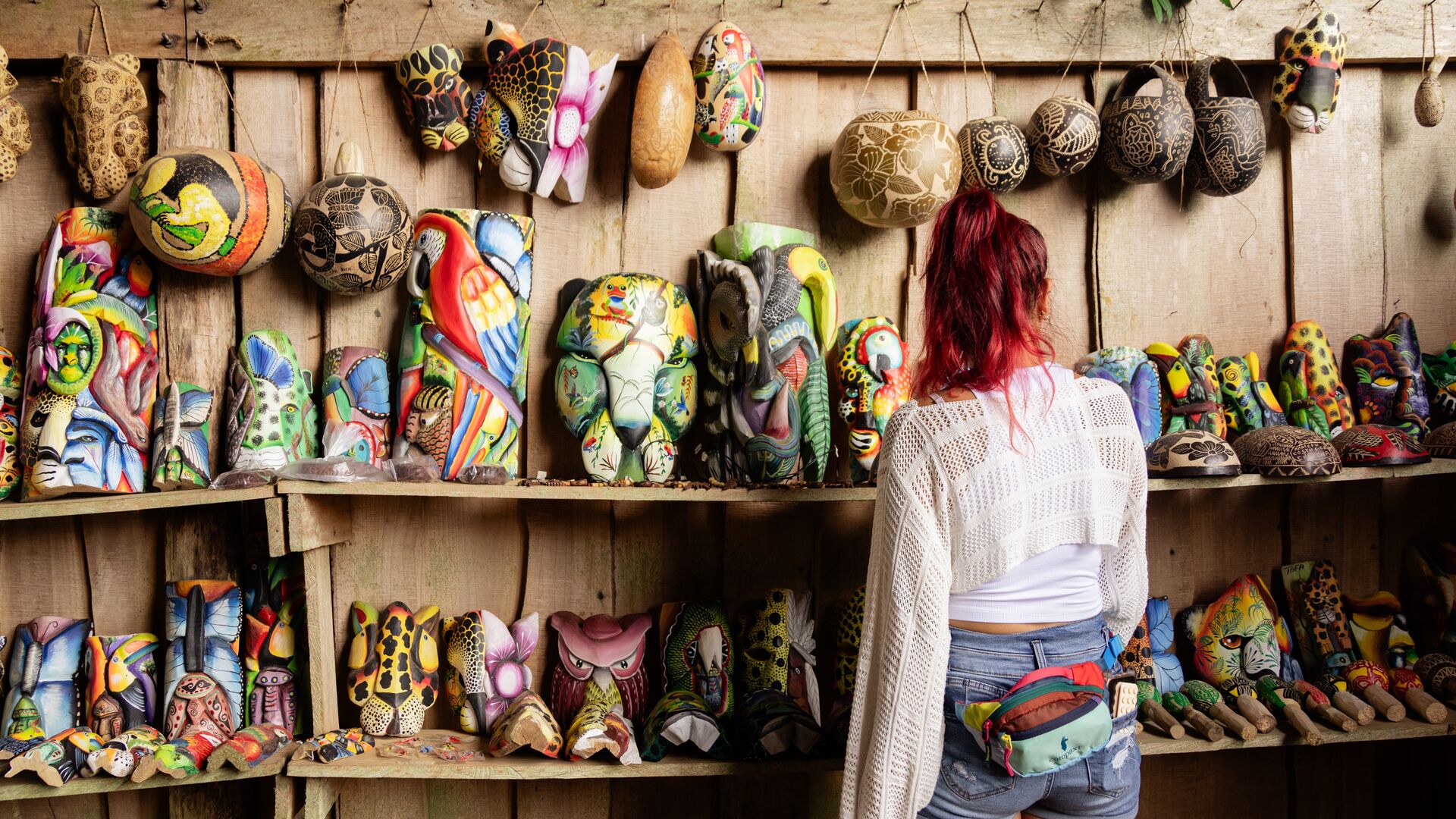
Natural talents
Jaquimo lead us through a display of his tribe’s creations, each crafted from natural materials. From handmade tools to hunting spears, everything was a product of the land and the skills to make them had been passed down for generations.
Alongside survival tools, the Maleku tribe also use the rainforest’s resources for recreation. Jaquimo showed us some traditional artwork that the Maleku paint onto tree bark and shells from native fruits. Nowadays, the tribe sells these items, including wooden masks and hand-carved decorations, to tourists, which gives them another way to support their community.



We had the chance to make our own masterpieces. Using the jícaro fruit, with its hard, smooth shell as our canvas, we used colourful paints to create depictions of Costa Rican wildlife.
Painting with my fellow travel buddies was a great way for us to connect. The whole group laughed when I showed them my attempt at painting a beautiful (or not!) butterfly. It felt refreshing to simply step back, leave technology behind and just enjoy the moment, completely immersed in the rainforest lifestyle. It echoed the feeling I’d had just days earlier, fully engaged, watching a turtle slowly carve its nest deep into the sand.
Global problems, community-based solutions
Jaquimo’s expression darkened when he told us about the growing challenges facing his tribe. From threats to their ancestral lands and food sources, to rising temperatures and unpredictable weather patterns, it is becoming increasingly difficult for them to depend on the rainforest.
‘We dedicate ourselves to sustainable living,’ he said. He explained how, by reforesting their land with native trees and running ecotourism programs like the one we were taking part in, the Maleku are working to ensure the survival of the tribe, both economically and culturally.
This display of resilience and positivity left a mark on me, and no doubt my fellow travellers too. For the rest of the trip, my growing appreciation for Mother Nature became more evident. Whether I was looking up at a toucan in the treetops, kayaking through mangroves or spotting wild tapirs in the rainforest, I was constantly in awe. The cherry on top was unexpectedly coming eye to eye with a sloth when strolling back to the hotel from an ATM. An incredibly special sight that ended the trip on a perfect note.
A lasting impact
Since travelling in Costa Rica, I’ve made a conscious effort to be mindful of my impact on the environment. I support eco-friendly, small local businesses and try to be more mindful about waste. I take a reusable shopping bag everywhere!
But the most valuable lesson was simple: slow down. It’s so easy to get caught up in our busy, consumerist lifestyles. It’s refreshing to disconnect, acknowledge the beauty of nature, spend quality time with others and appreciate the small things in life.
Because travelling – and life – isn’t about what you can take, whether that’s photos or physical souvenirs. It’s about being in the moment. It’s about what you feel and experience.
I understand now that nature’s purpose isn’t acting as a beautiful backdrop for a social media post. It’s providing the foundations for a harmonious way of life. Whether you live in the rainforest or a crowded city, and whether you appreciate it or not, nature sustains us. Its wellbeing is tied to our own. And only by taking care of it will we all continue to thrive.
Jemma watched nesting sea turtles and spent time with the indigenous Maleku community on Intrepid’s Classic Costa Rica trip.

